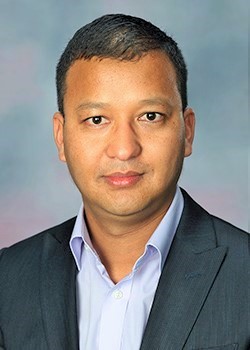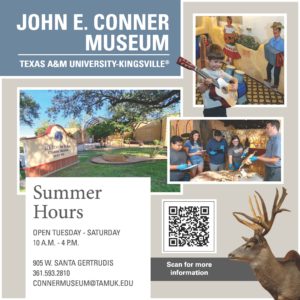Bhandari, Vela amongst 25 in the nation
Two Texas A&M University-Kingsville’s (TAMUK) faculty members were selected amongst the top 25 in the nation for the fellowship of the 2021 E. Kika De La Garza Fellowship Program. The fellows were selected by the United States Department of Agriculture (USDA) who choose faculty nationwide from Hispanic Serving Institutions.
Dr. Ammar Bhandari and Dr. Roberto Vela were the two faculty selected for the fellowship. Bhandari is an Assistant Professor of Soil Health, Soil Fertility and Nutrient Management and Vela is a Professor and Chair of the Language and Literature Department.
The fellowship, named after influential Latino congressman and representative of TAMUK, E. Kika De La Garza, is dedicated to its partnership between USDA and Hispanic-Serving Institutions, creating awareness of services, employment and resources under the USDA.
“Most people don’t realize how broad USDA is,” Vice President for Research and Graduate Studies Dr. Allen Rasmussen said. “They cover everything from the SNAP [Supplemental Nutrition Assistance Program] program to basic research in agriculture and agriculture productions.”
Contenders had to apply and write an essay highlighting why they were applying and the changes they would make for their students if selected.
They also had to include the classes they taught, how they engage with students and letters from their supervisor and president of the institution from which they are employed.
Bhandari was one of two science fellows selected for 2021, while Vela was one of 23 selected as an education fellow.
Bhandari was raised in Nepal and grew up watching his dad teach and would farm with his mother.
“I used to spend time with my mom in my early childhood playing in the soil…that kind of fascinated me,” Bhandari said.
“I decided to go into agriculture because that gave me a connection to my early childhood where I spent time with my mom working on our small field.”
Bhandari aims to connect and inspire his students, most of whom have graduated and have gone to work under USDA.
Vela worked in rural farming communities in Illinois, conducted research on Mezo America, agriculture and history and worked with migrant and Hispanic populations in different farming communities.
“Dr. Vela started to do collaborations with the College of Agriculture and looking at non-English speakers and the workforce and how that interacts with agricultural communities,” Rasmussen said.

